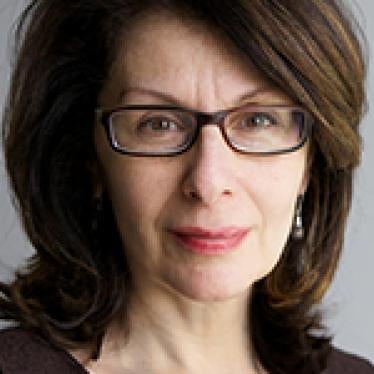The dramatic but peaceful transfer of power in Georgia on Sunday must be rattling repressive leaders all across the region. The danger now is that governments in Central Asia and the Caucasus may step up political repression to head off a similar scenario.
In Georgia, the savvy political opposition refused to swallow a blatantly rigged election. Although many Western observers still link former President Eduard Shevardnadze with the liberal reforms he defended so staunchly as Soviet foreign minister, he ran an abusive and corrupt government in Tbilisi and had become increasingly unpopular.
Yet Shevarnadze had allowed enough political reform to enable a free news media to flourish - the constant television coverage of the election protests and the vote fraud kept the public aware and concerned. By contrast, the Azerbaijani government tightly controlled coverage of the fraudulent presidential elections last month.
The governments in the region have spared little effort to prevent the emergence of popular, dynamic opposition movements and presidential candidates. In Kazakhstan, the government sensed a threat to its unrivaled power in the rising popularity of the Democratic Choice of Kazakhstan, led by a governor and a former energy minister. Both men were imprisoned and the political party was not allowed to register. In Kyrgyzstan, the president's main political rival has been in jail since 2000.
It is difficult to find a single country in Central Asia and the Caucasus where the Organization for Security and Cooperation in Europe found that national elections met international standards. In some countries, like Uzbekistan, the government simply doesn't tolerate any opposition political parties at all. Uzbek elections are such empty exercises that the OSCE doesn't bother to monitor them.
Now these governments are facing new elections. Kazakhstan will have parliamentary elections in 2004, and Kyrgyzstan will hold presidential elections in 2005. Fearing a Georgian-style "velvet revolution," they may postpone political reform and crack down harder on opposition movements. They may bring out the troops on election day, as the Azerbaijani government did, to prevent peaceful protest from developing into anything more.
These governments are new allies of the United States, both in its global campaign against terrorism and its determination to find alternatives to Middle East energy dependence. Washington has pressed for free and fair elections in the region. But too often, it has exerted little effective pressure on governments that resist democratic change.
This was not the case in Georgia. The Bush administration dispatched senior envoys to seek early assurances that the vote would be free and fair. Washington also spoke out strongly in protest of the fraud. This effort helped the democratic opposition to cast the government's actions as illegitimate, paving the way for a peaceful transition.
In contrast, Washington was blasé before recent elections in Azerbaijan, even though the government used every trick in the book to manipulate the process. Only in the final days before the vote, when the Bush administration feared that violence would break out, did it begin to issue sharp statements.
As these countries enter into new election cycles, America should learn the lessons of Georgia. It should make clear what will constitute a free and fair vote. It should also make clear the diplomatic and financial consequences of a rigged vote. In Kyrgyzstan, it should insist on the release of Felix Kulov, President Askar Akaev's main rival. In Kazakhstan, it should insist on the registration of the Democratic Choice of Kazakhstan. It should always insist that electoral commissions be balanced, and that domestic monitors be allowed to monitor the vote and the tally process.
Nor should the administration give up on Azerbaijan. International experts should be appointed to what is now a domestic commission of inquiry into the election fraud. The commission will need overt international support in order to do its work.
Georgia still faces enormous challenges to achieve democratic government, not least from separatist movements across its mountainous territory. Bringing good governance to the rest of the region is a far greater challenge, whose time has come.







